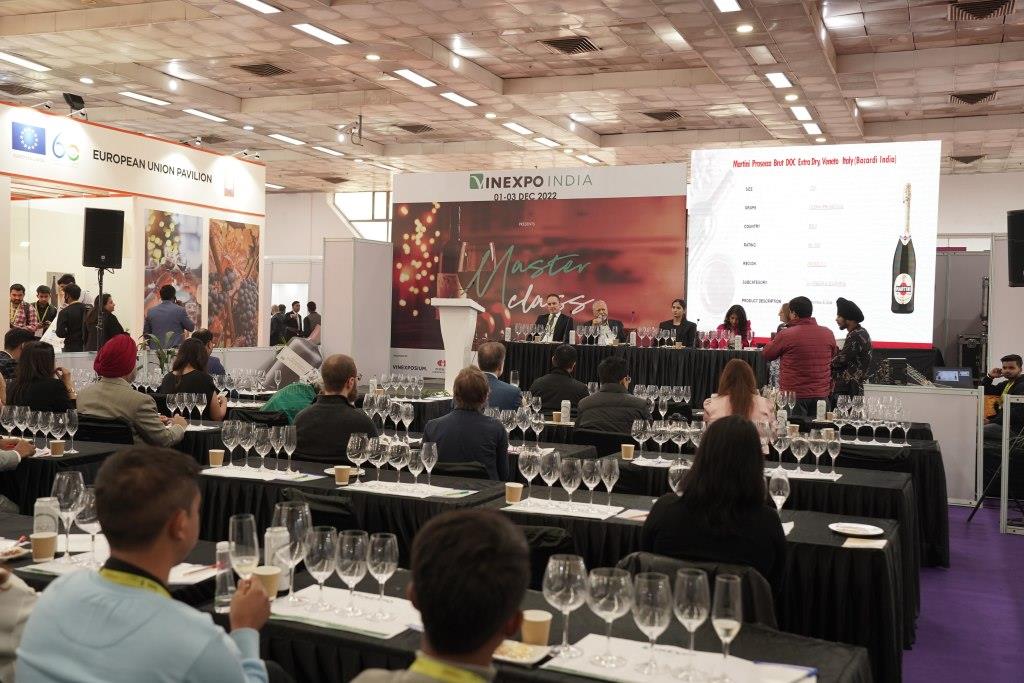Training Tomorrow’s Tastemakers: The Importance of Sommelier Education and Certification in India
Authored Article by Mattia Antonio Cianca, Co-Founder and Vice-President of the Sommeliers Association of India India’s culinary landscape has undergone a remarkable transformation in recent years. Fine dining restaurants, upscale hotels, and even more casual dining

Authored Article by Mattia Antonio Cianca, Co-Founder and Vice-President of the Sommeliers Association of India

India’s culinary landscape has undergone a remarkable transformation in recent years. Fine dining restaurants, upscale hotels, and even more casual dining venues are becoming increasingly adventurous in their approach to food and drink.
One of the most exciting aspects of this change is the growing importance of wine within the overall dining experience. While India may not have a strong wine culture, the country’s evolving palate and rapidly expanding hospitality industry have created the perfect environment for wine to thrive.
At the centre of this revolution are the sommeliers—highly trained professionals whose expertise extends far beyond knowing which wine to serve with dinner. The role of the sommelier in India is becoming essential, not only for pairing wines with the complex flavours of Indian cuisine but also for enhancing the overall guest experience. However, as India’s wine culture continues to develop, the need for formal sommelier education and certification has become more crucial than ever.

Why India Needs Certified Sommeliers
A sommelier’s job may seem straightforward—selecting, recommending, and serving wine—but in reality, it’s a complex and highly skilled profession. In a country like India, where wine is still a relatively new addition to the dining table, the role of a sommelier becomes even more vital. Sommeliers bridge the gap between consumers and the ever-expanding world of wine, making it approachable, enjoyable, and relevant to Indian tastes and traditions.
India’s cuisine is incredibly diverse, with regional dishes offering a wide range of flavours, textures, and spice levels. Pairing wine with these dishes is no easy task. What complements a spicy South Indian curry won’t necessarily pair well with the creamy richness of butter chicken or the smoky complexity of tandoori dishes. Sommeliers are trained to understand these nuances and select wines that not only enhance the flavours of the food but also introduce diners to wines they might not have considered before.
But it’s not just about pairing wine with food. A sommelier’s role encompasses the entire experience, from choosing the right glassware to serving the wine at the perfect temperature and it is not only wine, we are looking at spirits, beer, sake, tea, coffee, etc. Theatrical elements like decanting and presenting the wine are part of creating a memorable dining experience. In India’s growing fine dining sector, diners increasingly expect this level of expertise, and certified sommeliers are essential to meeting these expectations.
The Growth of Wine Culture in India
India’s wine culture is still in its early stages but is growing rapidly. With more Indian consumers showing an interest in wine, the market is ripe for development. Wine lists are becoming more sophisticated, featuring both well-known international labels and lesser-known gems, including local Indian wines. However, a significant challenge remains: many consumers, and even some hospitality professionals, are not fully educated about wine. This is where sommelier education and certification come into play.
Globally recognised wine certification programmes, such as the Wine & Spirit Education Trust (WSET), the Court of Master Sommeliers (CMS), and ASI certifications, are present in India. These programmes offer aspiring sommeliers the opportunity to gain internationally respected qualifications that not only increase their knowledge but also open doors to new career opportunities. The demand for certified sommeliers is rising as hotels, restaurants, and even wine retailers seek professionals who can bring a high level of expertise to their establishments.
Education as a Path to Professionalism
Becoming a sommelier isn’t just about memorising wine regions or learning how to pronounce French or Italian terms. It’s about understanding the science of winemaking, mastering the art of food and beverage pairing, and refining the ability to communicate that knowledge in a simple and digestible way that enhances the guest experience while providing valuable education. Certified sommeliers undergo rigorous training in areas such as viticulture, oenology, wine tasting, and service techniques. The certification process ensures that these professionals are not only knowledgeable but also skilled in delivering world-class wine service.
For India, the availability of formal sommelier education is a game-changer. As more professionals seek certification, they will help elevate the standards of wine service across the country. This, in turn, will contribute to a stronger wine culture, where consumers feel more confident exploring new wines and trusting the recommendations of trained professionals.
Building a Community of Sommeliers in India
The rise of sommelier education and certification in India is also helping to foster a community of wine professionals passionate about sharing their knowledge. Organisations like the Sommeliers Association of India (SAI) play a key role in this development by providing networking opportunities, educational resources, and a platform for the country’s sommeliers to collaborate and grow together.
As this community expands, it will also help push the Indian wine industry forward. By working together, sommeliers can advocate for better wine education, influence the growth of the local wine market, and even contribute to improving Indian wines by offering feedback to producers.
The Global Influence on Indian Sommeliers
One of the most exciting aspects of sommelier education in India is the global influence it brings. Indian sommeliers are now studying at the highest standards, learning not only the technical aspects of wine and other beverages but also the latest trends in service. This global perspective is helping to shape the future of India’s wine culture, making it more dynamic and forward-thinking.
By embracing global best practices while adapting them to the Indian context, these sommeliers are helping to create a wine culture that is uniquely Indian yet globally relevant. As India’s food scene continues to evolve, the importance of having certified wine professionals will only grow.
Conclusion: The Future of India’s Sommeliers
India is at a pivotal moment in its wine journey. As more consumers embrace wine and more restaurants integrate it into their dining experiences, the role of the sommelier will become increasingly important. By investing in sommelier education and certification, India is not only training tomorrow’s tastemakers but also laying the foundation for a thriving wine culture that will enrich the country’s hospitality industry for years to come.
In the end, certified sommeliers are more than just wine experts—they are ambassadors of taste, culture, and hospitality, playing a key role in shaping the future of India’s dining experiences.
—-
 English
English French
French German
German Italian
Italian




